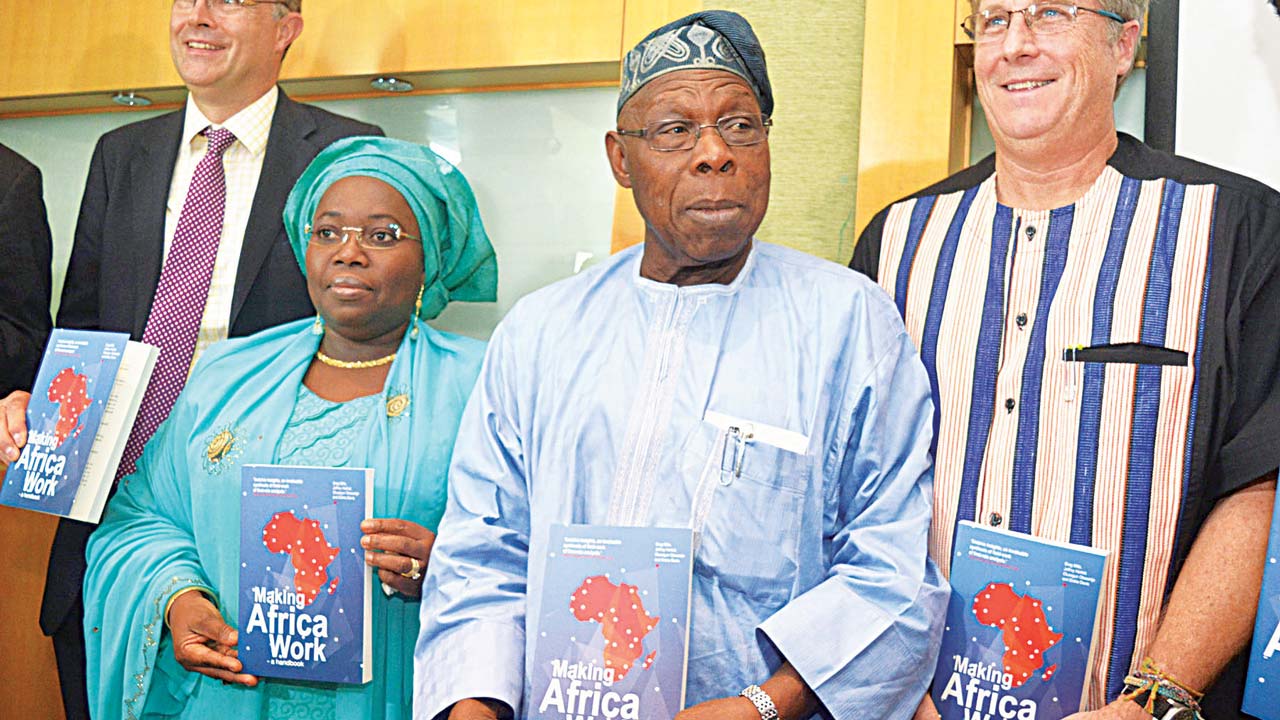
Former President Olusegun Obasanjo yesterday described Africa as a rich continent but poorly managed.
Obasanjo, who spoke at the launch of a book titled ‘Making Africa Work’ held at Radisson Blu Hotel, Victoria Island, Lagos said there was urgent need for job and wealth creation for the African youths. “Africa is not poor but poorly managed, and if it would be corrected it has to be correctly managed.”
Greg Mills, Jeffery Herbst, Dickie Davis and the former president wrote the book.
The authors mentioned that to save the continent from being overthrown by aggressive youths who perceive that they have no future on it, governments need to address the challenges.
According to them, it seems inevitable that the number of failed states in Africa will increase if leaders do not move to address the challenges presented by the large population increases that are projected with the concomitant suffering and chaos that accompany institutional collapse.
The authors who are members of Brenthurst Foundation advocate tough decisions to move the continent from backwardness.
“The Arab Spring, when youths who perceived that they had no future overthrew leaders and destabilized countries in a matter of weeks, highlights how quickly such tensions can spill over, even into political collapse. The threat is particularly severe now that power is increasingly in the hands of individual citizens enabled by the rapid spread of mobile communications.
“We are hopeful about the prospects of African countries, but only if tough decisions are made now. The old ‘business as usual’ approach of governments and leaders has to change if they are to cope with Africa’s pending population boom.”
“Reform necessitates fundamentally changing the way in which African economies work. It means being open to international trade and capital rather than aid, being reliant on enterprise rather than personalized and patronage-ridden systems, while the aim of government should be private- sector growth rather than public sector redistribution,” the author wrote in the book.



